BS”D
Sukkah 46b – 47a
Teves 10, 5783. January 3, 2023
1- We began with a topic that is much discussed in many places in Sha”s and in the world of Lomdus.
Reb Zeira says that one should not give his Lulav to a child while the child can indeed acquire it (be קונה) he cannot give it (or sell it) back to the father.
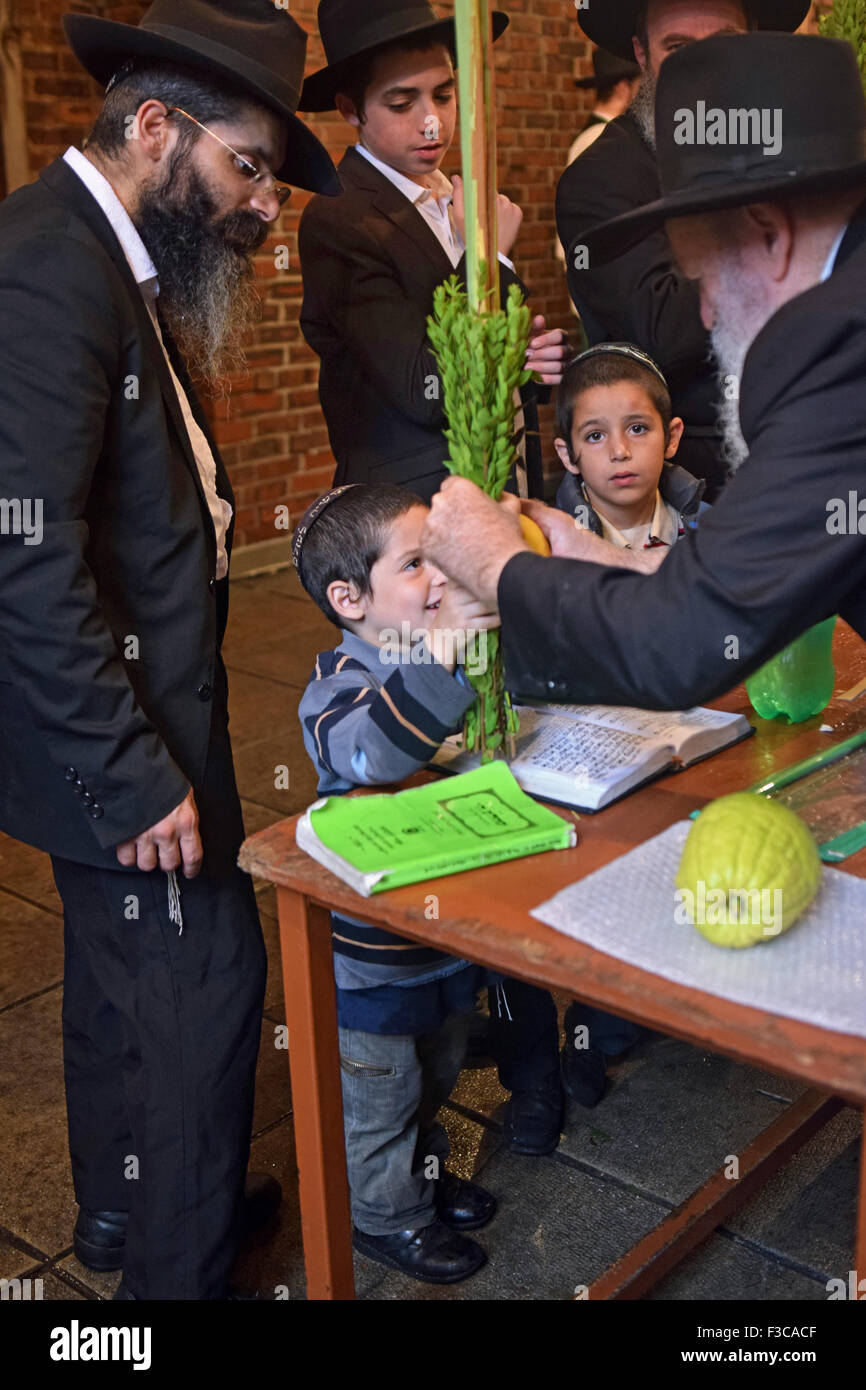
This one-way transaction is based on a תקנה of the Rabanan. Min Hatorah, a child under Bar Mitzva cannot buy or sell. Acquire or gift.
Seeing that unscrupulous people would grab away items from children causing anxiety, the חכמים enacted that once the child is given something it belongs to him. Period. The תקנה is for the קטן to acquire, not to give it to others.
Thus, giving the Lulav to a child would be non reversible. Meaning the father/giver would not be able to ‘own’ it by taking it back from him.

2- From this suggestion, of not giving it to a קטן, it would seem that there is no method at all to give it to a קטן and get it back – even with a מתנה על מנת להחזיר.
As we mentioned in a previous shiur, the Rosh writes מתנה על מנת להחזיר will not help with a קטן- ‘since to fulfill the תנאי the קטן would need to ‘gift it’ ‘back to his father.
This means that according to the Rosh, in general with any מתנה על מנת להחזיר the return is not automatic. It needs a full הקנאה in return.
We mentioned the קצות that disagrees and explains that מתנה על מנת להחזיר goes back automatically to the original owner.
We discussed if giving to a קטן with a מתנה על מנת להחזיר would indeed work with a Lulav.
3 – Another wide ranging topic discussed concerns an Esrog that was unpaid for before Yom Tov.
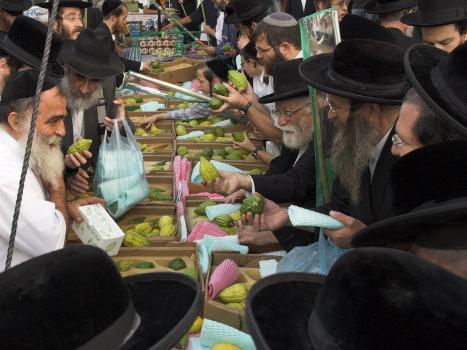
The buyer acquired the Esrog with קנין משיכה by taking the Esrog home. Now, this קנין, as opposed to קנין כסף, is only מדרבנן.
So the question is: does the buyer ‘own’ the Esrog only at a דרבנן level (an issue of the לכם on the first day) or the תקנת חכמים has the power to elevate their קנין to a דאורייתא level.
We mentioned the מחנה אפרים who was the first one to raise this question.
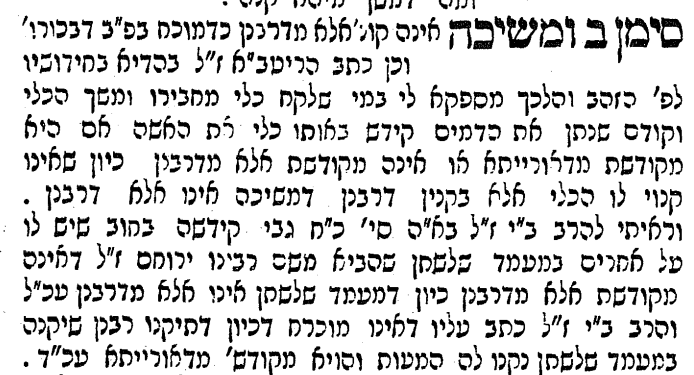
4- We began the famous Sugya of what to do about Sukkah and Lulav on Shemini Atzeres.
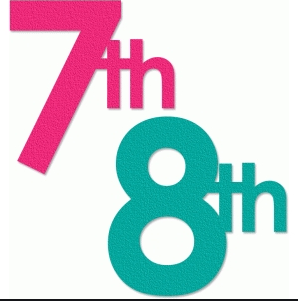
At first glance, since we are/were unsure if Shemini Atzeres is indeed the 8th day (and a separate Yom Tov on itself) or perhaps it’s the 7th day of Sukkos, of course we need to do both Lulav (מדרבנן like all חול המועד days), and eat in the Sukkah (מן התורה).
All Yomim Tovim we observe a second day since we are unsure and perhaps it is actually the first day of Yom Tov. Like the second day of Pesach.
The issue with the 8th day of Sukkos is that it perhaps it’s the 7th day of Sukkos or maybe not. However, if it is not, then it is indeed the 8th day which is a new Yom Tov, Shemini Atzeres, on its own.
In other words, as opposed to other ימים טובים , if the day in doubt is incorrect, then it’s not a יום טוב. In the case of שמיני עצרת, if it’s not the 7th day of Sukkos then it’s a Yom Tov of שמיני עצרת.

We discussed briefly as to why we make a ברכה on יום טוב שני despite the general rule of ספק ברכות להקל.
Discussed some of the issues that arise with observing Sukkos on שמיני עצרת.
- Such as, מוקצה for the Lulav, if it is indeed שמיני עצרת.
- Contradiction of observing שמיני עצרת and acting, by sitting in the Sukka, as if it is not Yom Tov. Imagine we would need to put on Tefillin on the Second Day Yom Tov!
- As the רי״ף writes, it’s a זלזול יום טוב.
- Bal Tosif. בל תוסיף. Taking the ד׳ מינים an extra day.
5- In general, the לא תעשה of בל תוסיף when doing a Mitzvah, not in its prescribed time frame, like Tefillin on Shabbos, is transgressed only if one has the intention כוונה to be מקיים to perform this extra Mitzvah לא בזמנו.
However, for example, someone who is unsure if today is the 7th day of Sukkos or Shemini Atzeres, on the contrary, he must sit in the Sukkah but with a תנאי: ‘If today is not Sukkos I’m just sitting outdoors for pleasure’.
So the גמרא says that the sitting in the Sukkah on Shemini Atzeres, which we must do, should be somehow different – perhaps by not making a לישב בסוכה. This emphasizes the doubt we’re in. Our sitting in the Sukka is without intention of being מקיים מצות סוכה if it is indeed שמיני עצרת.
To be continued next week when bl”n well try to understand the Minhag of many, (despite an open and clear cut גמרא to sit in the Sukkah and not make a ברכה) – not to sit in the Sukkah!
6 – We encountered a truly rare and mystifying גמרא. Adding to the mystery is that no ראשונים attempt to explain.
The גמרא relates a story about Rav Huna and all the גדולי הדור were in the farmlands with no Sukkah for the 7 days of Sukkos. They came into town only on שמיני עצרת and entered a Sukkah for the first time.

The expression in the Gemare is גמירי דמאפר קא אתו – ‘we have a קבלה that they arrived from אפר – a marsh’.

As Rashi explains they didn’t sit in a Sukkah until שמיני עצרת!
How is that possible? All Gedolei Hador didn’t observe מצוות סוכה?
We find many explanations in אחרונים starting with the מהרש״ל that it was a שעת הגזירה that prevented them from gaining access to a Sukka until שמיני עצרת.
In the name of Reb Chaim Berlin (grandson of the נצי״ב) it says that אפרא here means Queen Ifrah Hurmiz who was the mother of Shvur , who was the king over Eretz Yisroel at the time. (Bava basra 10b) אִיפְרָא הוֹרְמִיז אִימֵּיהּ דְּשַׁבּוּר מַלְכָּא
These great men needed to meet her for טובת הכלל and sacrificed their Sukkah observance for the benefit of כלל ישראל.
We mentioned what Reb Levke Kaplan related in the name of Reb Mottel Rivkin A”H. Reb Mottel was told by an old Russian Jew of seeing a rare manuscript in the home of a wealthy non Jewish baron. This manuscript was of a hand written Shas on parchment.
Upon inspection, he noticed that on the sidebar on מסכת סוכה, next to the words מאפר there was a handwritten note
מאפ״ר מאימת פחד מלכות רומי.
Meaning that the word מאפר was written in code. The גמרא didn’t mean that these חכמים spent Sukkos on a farm without a Sukkah. These great people were on the run or unable to observe the Yom Tov properly in fear of the oppressing Roman rule.
We mentioned briefly the earliest know hand written manuscript of the entire Shas.
See here. https://www.bavlionline.org/manuscripts/
The above note does not appear there.
7- Another brilliant explanation from the Ohr Sameach. Here: 6, 13.
In short- the גמרא wants to prove that although we sit in a Sukkah on Shemini Atzeres a ברכה is not said. They quote the above story when these חכמים entered the Sukkah for the first time on שמיני עצרת they didn’t make a ברכה. That seems like solid proof that no ברכה is made on the Sukkah on שמיני עצרת.
The גמרא counters that perhaps the opinion of these Gedolim was that לישב בסוכה is said only once, on the first night of Sukka. That is why they didn’t make a ברכה on שמיני עצרת.
So their not making a ברכה on Shemini Atzeres is not a proof for us. As we make a ברכה every time we walk into a Sukkah, and we need to do it on שמיני עצרת as well.
The גמרא responds that ‘we have a קבלה that they arrived from אפר – a marsh’.
As above, Rashi says, they didn’t have a Sukkah until שמיני עצרת.
The אור שמח suggests that while in the marshes they did indeed have a Sukka and made a ברכה the first night only (as per their opinion) and that was valid for the entire 7 days preceding this encounter in the city.
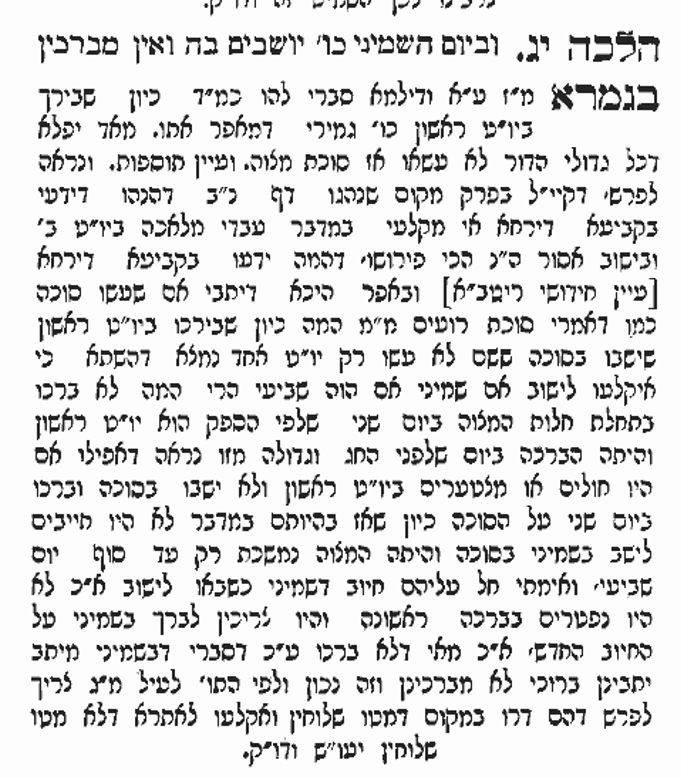
But these scholars were unique in their observance of Yom Tov. While the city dwellers were unsure of the correct days of Yom Tov, (this occurred at a time before the calendar was established) these גדולים knew the exact days of when Yom Tov occurs.
The rule is, as per the גמרא in Pesachim 52, one who knows how to calculate the monthly calendar can indeed follow his mathematical conclusion and observe that day as the Yom Tov only with no need to observe the second day:
“אֲמַר לֵיהּ רַב סָפְרָא לְרַבִּי אַבָּא: כְּגוֹן אֲנַן דְּיָדְעִינַן בִּקְבִיעָא דְיַרְחָא,
Rav Safra said to Rabbi Abba: Communities in a situation like us, who, based on calculations, already know the determination of the month and are no longer concerned lest the Festival be observed on the wrong day, clearly, on the second day of a Festival,
בַּיִּישּׁוּב לָא עָבֵידְנָא מִפְּנֵי שִׁינּוּי הַמַּחְלוֹקֶת. בַּמִּדְבָּר מַאי? אֲמַר לֵיהּ: הָכִי אָמַר רַב אַמֵּי: בַּיִּישּׁוּב אָסוּר, בַּמִּדְבָּר מוּתָּר.
we do not perform labor in the settled area due to the need to avoid deviation that causes dispute, as it is the custom in the Diaspora to refrain from performance of labor on those days. However,
in the desert outside the Jewish community, what is the halakha? He said to him that this is what Rav Ami said: In a settled area it is prohibited; in the desert it is permitted.”
Indeed, one keeps one day only, but with one caveat. One can do that only if he is out of the city, traveling or in a desert. Inside the city walls he must follow the city dwellers and observe two days.

These scholars were in the marshes kept only 1 day Yom Tov, as opposed to those in the city, who kept 2 days. On the first night of Sukkos they made a לישב בסוכה. They had no intention, as above, to make this ברכה again throughout the entire Yom Tov. On their שמיני עצרת they obviously would not have sat in the Sukkah.
However, they entered the city and now need to follow the custom of the locals and observe 2 days Yom Tov. So their שמיני עצרת is now perhaps only the 7th day of Sukkos.
And their first night of Sukkos, based upon the calculation of the city people, was….ערב Yom Tov.
So the ברכה they made on the first night was null. Since they didn’t make a ברכה on the second night (unlike the city fellows) they never made a proper ברכה.
So when they entered the city Sukka on שמיני עצרת, which is perhaps the 7th day of Sukkos, they would have needed to make a ברכה. Unlike the city people who made a ברכה on the second night and therefore had no need to make the ברכה.
So why didn’t they make a ברכה?
Aha!
That is proof that on שמיני עצרת the חכמים established that despite it being a ספק, perhaps it’s the 7th day of Sukkos, we should (sit in the Sukka but) not make a ברכה for reasons above in paragraph 4.